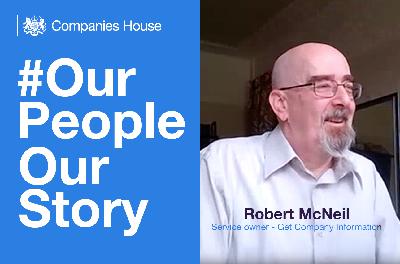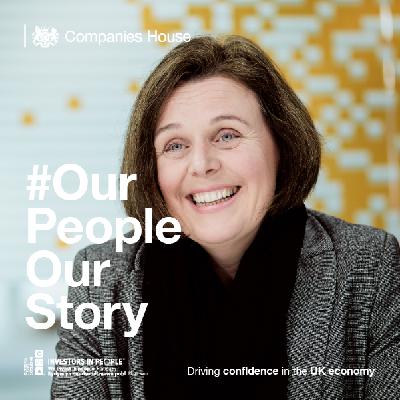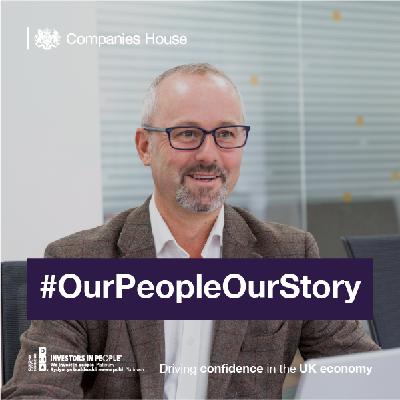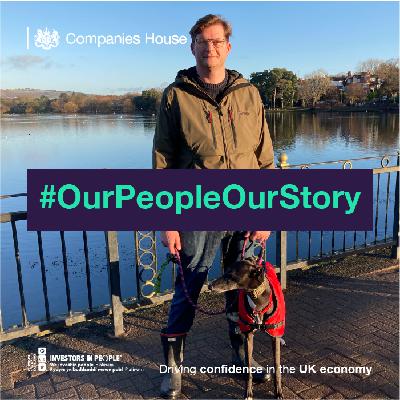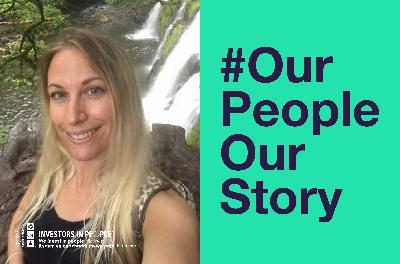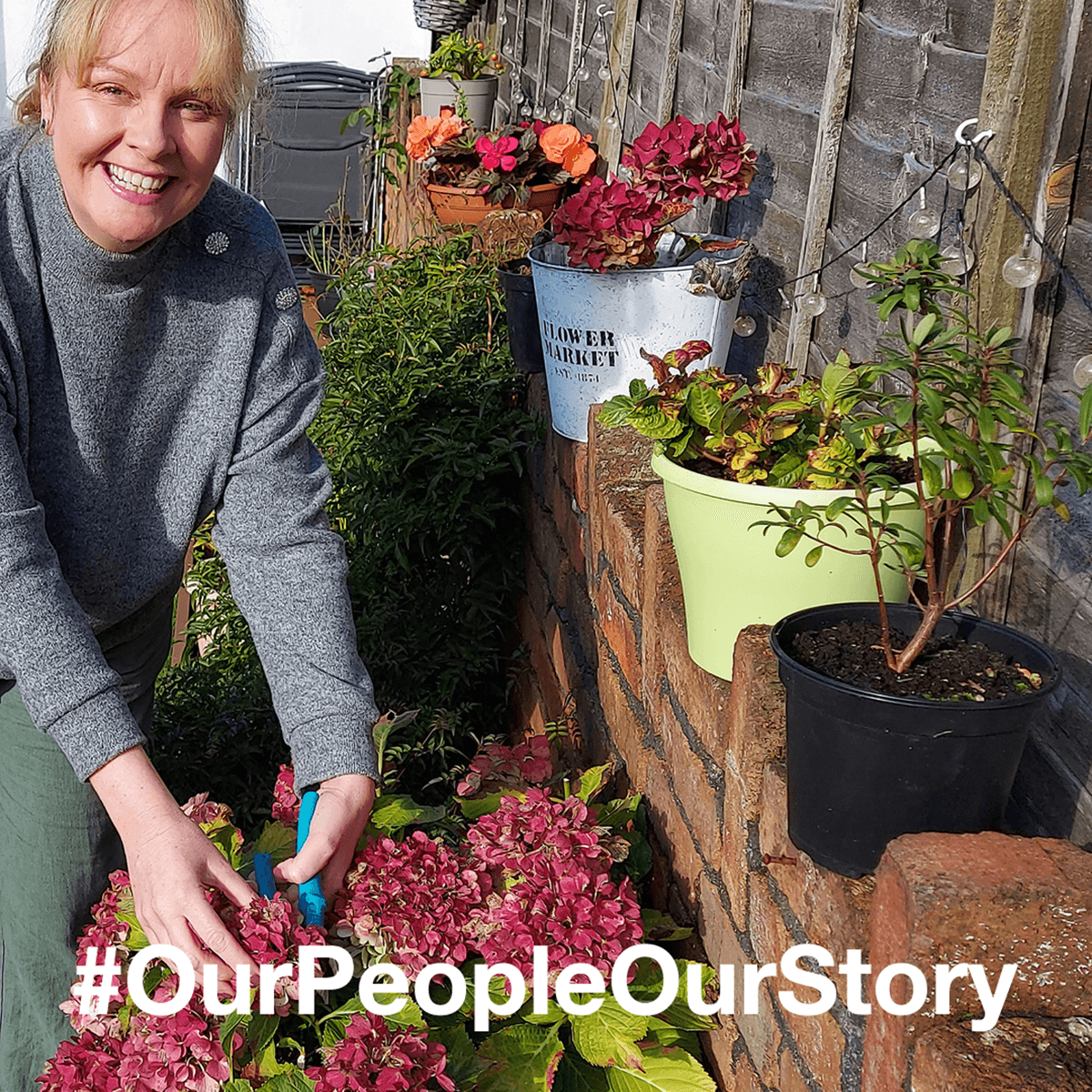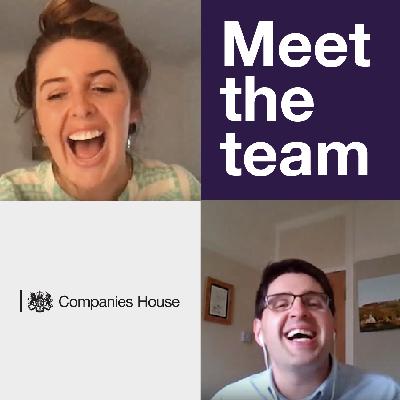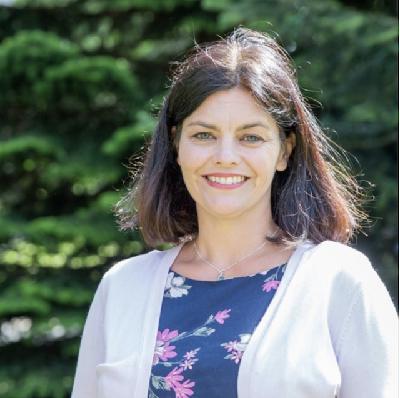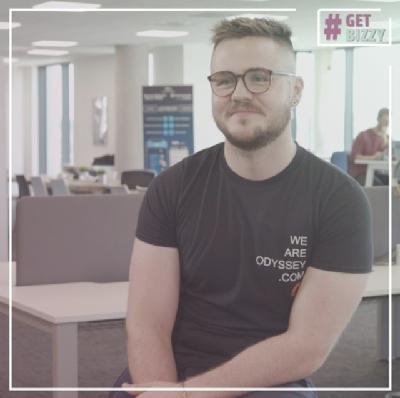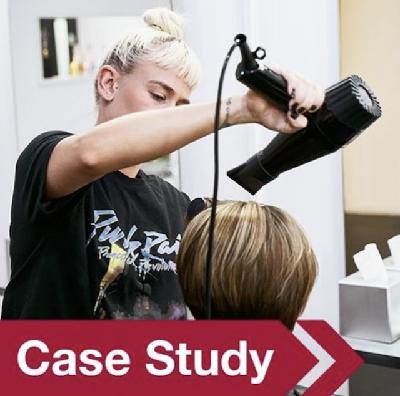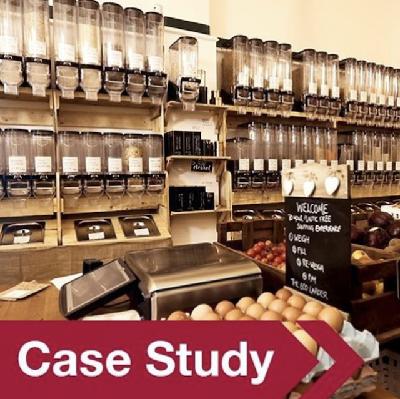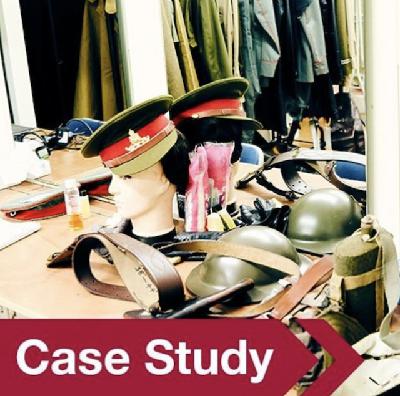Robbie McNeil: Service Owner of Get Company Information
Description
In this podcast Meg speaks with Robbie McNeil, Service Owner of Get Company Information. They discuss how we maximise the value of the register to the UK economy. This is the fourth podcast in a six part series, each one discussing our strategic goals.
MH: Hello and welcome to another episode from Companies House. We have recently launched our new five-year strategy and one of our strategic goals is about how we maximise the value of the register to the UK economy. So, I'm here today with Robbie McNeil who is the service owner for ‘Get Company Information’ at Companies House, and today Robbie is going to give us a bit of an insight into his work and how that runs through who we are and what we do. Hi Robbie. How are you?
RM: I am fine, thanks.
MH: Good. Excited to record this podcast today?
RM: Obviously, we all look forward to being on camera so much.
MH: Of course, of course. So, my first question to you is, can you tell me a little bit about your role and what it means to us as an organisation?
RM: Yeah, of course. So, as the service owner for ‘Get Company Information’, probably the easiest way to explain it is if you think about the core duties of Companies House, so creating and dissolving companies by adding or removing them from the company register, collecting and maintaining information about those companies, and then that third strand of what we do is making that information available to the public and it's that third duty that the ‘Get Company Information’ service exists to satisfy.
MH: Yeah. A pretty important job, then.
RM: It is, you know, especially in terms of our move to a service-based model. You know that's key to our transformation as an organisation. Moving from that sort of a functional silo based approach where people focused on just their part of the service to a wider service team that encompasses everybody from policy advisors who shape what it is we're here to do through the digital teams that design and build our services and to the operational teams that make those services work for our customers, all with a shared sense of purpose. Brilliant people building brilliant systems to deliver a brilliant service to our customers. So, it's really great to be a service owner and being brought back to the heart of that.
MH: Thank you. That's really good. And my next question is can you tell me a bit about the value of the data on our register?
RM: Yeah. One of the reasons why this particular service is so close to my heart, I think, when I first joined Companies House, which was a long time ago, and I'm not going to tell you the year; the then CEO used to meet every new recruit and his explanation of the deal that underpins Companies House has always stuck with me throughout my career and that that deal being that in exchange for the protection of limited liability, information about a company is made public so that people can make informed decisions about dealing with it. So, I've always remembered that. That making that information public has always been a key part of my understanding about what we're here to do. But that data itself is worth nothing, if it's not out there being used and so back in the day, when I first joined it was a relatively specialist thing to deal with company information. You had your search agents and they had actually set up offices in Crown Way or near our other offices just so they could come in and get the microfiche and read the microfiche and print bits out and so on. So, you know things have moved on hugely since then. As we've made our data available online and more recently available for free on our CHS service, we've really opened it up for people to use and seen a huge increase, you know orders of magnitude increase in terms of the people accessing the data. So, I think is over 9 billion searches last year, which is when you think the size of Companies House as an organisation to be satisfying that many searches for data in a year is just phenomenal. Punch well above our weight in terms of being a relatively small part of government. In terms of that value to the UK economy and the business activity that information informs as part of that transparency deal, an independent report recently valued it at between one to three billion pounds annually, which again is just when you think of the size of the organisation that we're making that big an impact, now I find that really exciting and you can be really proud of that as well.
MH: Yeah, definitely is. I can’t believe we've actually how far we've come on when you said about the companies on Crown Way and come in and I'm interested to know what year you started in Companies House now.
RM: So, it was late 1980s. So, 88.
MH: Before I was born.
RM: Oh well you had to add that one in. Thank you. Before I was born people were working at Companies House now, I think.
MH: Yeah, so going forward, how will we be maximising the value of our registers?
RM: So, we've got a number of really exciting initiatives planned. I probably haven't got time to go through them all, but I'll try and give you a flavour of some of them. Some of them are happening right now really. So, we've recently developed enhancements to our award-winning streaming API service. So, streaming API service, which is first of its kind in government and that service allows our customers to some busy tapping to the stream of data and they can consume updates to the register in real time. So, as soon as we get it, it’s streamed up there and they're getting those updates as well. So, we already had streams for changes to information on filing history of a company, company profile. So, basic company details. Insolvency information, and charges information. But we've developed two additional streams that they're in demand from our customers. So, officer and PSC (person of significant control) information. They’re there. Ready to go. We're just finishing off some of the documentation around it to tell our customers how to interface with those streams and we hope to release those in the next few weeks. And that's not the end as far as that service goes either. So, over the next year, we're going to be developing data that takes snapshots for that streaming API service. So, at the moment if you tap into a stream, you can consume any changes from that point on. You can actually go back upstream a little way for about seven days and get the changes from the last seven days. But obviously what a lot of customers want is well, I want the whole data set and then be able to keep it updated. So, we will be adding data snapshots on to those streams. So, you can join the stream, go back upstream for the last snapshot, get that snapshot, so full dataset and then consume the changes from that point on and keep your own records of the data. So, that that's one exciting thing we're doing on that.
We're also looking at unlocking the value of the data stored in the images of filings on CHS. So, at the moment these are static pictures when you go into CHS and you see a PDF next to the transaction and say, oh I'll have a look at the actual filing. That's fine when we see it comes up because we're used to looking at pictures. We don't need necessarily think of it because it looks like text but is actually a static picture so included in just dots. Dots on a white background. So, people who rely on screen readers, blind people who rely on screen readers to read information, it's useless to them. So, their screen reader will say, “oh yeah you have got this transaction on file history or this there's an associated PDF. Would you like to read it? Yes, please. Yeah then says that contains a picture called image.” That’s all they get.
MH: Oh.
RM: Yeah.
MH: So trying to make it more accessible.
RM: Make them fully accessible. It's also even for people who want to do analysis of the data on there as well. So, at the moment say it's a picture. It's dots, if you like, what we call a raster image. But by making it fully accessible data within a PDF, you can search for particular bits of text in the field, you can process the data automatically, you can analyse the data and so on. So, it really unlocks the potential of that information. So, we have a project currently ongoing, ‘the accessible filing data’ project. Appropriately named. That's already, we've got a fully accessible versions of appointments and we're just finishing off incorporations. When we're happy with those, will release both those. We will probably have a pause then and then we look at future project phases to tackle all the other types of files we have and make those accessible as well. So, that's really exciting.
MH: Yeah, that’s so exciting.
RM: We are adding more data all the time. So, we've recently added 1.9 million dissolved company records onto CHS. So now you got complete record all the way back to January 2010 and we're currently working on a dissolved company search tell by users identify older dissolve can be so pre-January 2010. And then we're we be taking in some of the plans we've got for that search functionality. We can then take some of that functionality and use that to improve our alphabet exert service. And we also have plans, and this is the bit that the really excites me because this is something I've been wanting to do on CHS as we first put it in years, like part of my original “wouldn't be great if we can do this” and that's to build and enhanced search and reporting service. So that will allow much more flexible search criteria. At the moment, our search isn’t designed to allow people to identify a particular company. And you

